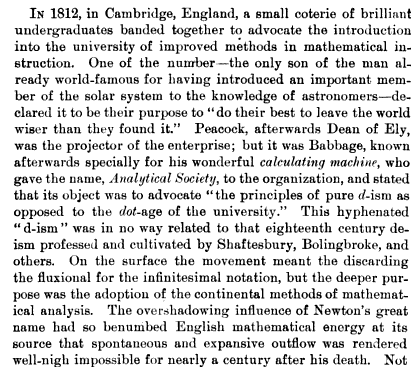It is a play of words by Charles Babbage. Deism was a religious belief or rather a movement promoting the idea that God exists but it does not interfere with whatever happens in this world. This old philosophy according to the Wikipedia "...asserts God's existence as the cause of all things, and admits its perfection (and usually the existence of natural law and Providence) but rejects divine revelation." Now, Babbage writes d-ism which sounds the same, but now the reference is Leibniz who was one of the founders of calculus (there was a major controversy whether Newton invented calculus or Leibniz). We still use his d's in differential calculus. Newton on the other hand was using dots in his calculations for symbolic purposes. Dotage also means someone who is becoming senile (see comments for other meanings). Basically, the writer is making fun of Newton, who is an Englishman himself, and asking his peers to adopt the symbolism of Leibniz.
P.S. In some European textbooks, one might see dots over a variable to show a differential operator usually with respect to time. No "d" is used then.

Google Books, The Methodist Review
